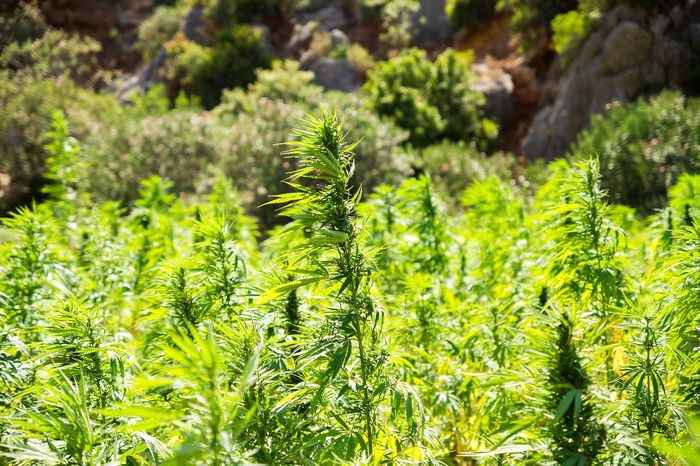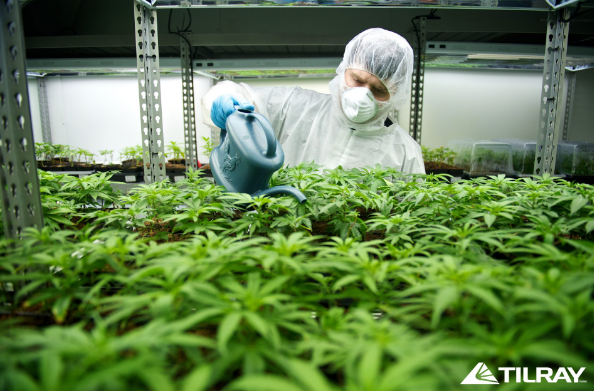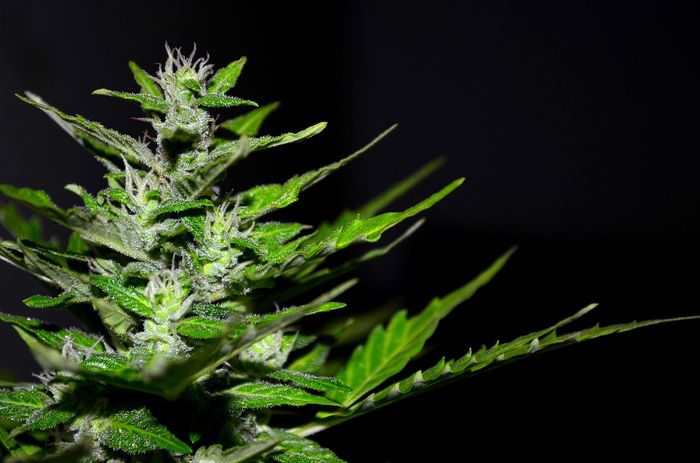- Cannabis use has increased in Europe in recent years. Yet not all countries have the right climate or large enough areas of agricultural land to meet the demand.
- This is not the case though in Spain and Portugal, who are using the situation to their advantage.
- And while seizures have increased in Spain, the multinational Tilray aims to turn Portugal into Europe’s largest exporter of medical cannabis.
- Apparently, the Iberian Peninsula is no longer Europe’s garden of vegetables but of cannabis.

Even if cultivation is not allowed in either country, cannabis production has increased both in Spain and Portugal in recent years. In 2015, nearly 400,000 plants were seized in Spain alone, according to the United Nations Office on Drugs and Crime's last report. Meanwhile, the eyes of Canadian giant Tilray are on Portugal, where the company intends to set up its first European medical cannabis plantation drawing upon the government's concessions on therapeutic marijuana, a strategy of the Iberian country to become Europe's market leader in the sector.
Spain has been Moroccan cannabis gateway to Europe for years. However, this trend appears to be changing. While production is still far higher in Morocco - in 2015 the country had 47,000 hectares of cannabis plantations, an area the size of Bilbao - everything points to a significant increase in the number of growers in Spain. In the absence of official production data, such conclusion has been drawn from the increase in plant seizures, which rose by 53.6% between 2013 and 2014 and by 40.3% in 2015.
From intermediary to producer
In this new scenario, two large-scale grower profiles have emerged in Spain: individual guerrilla growers who are not afraid to grow in the middle of the woods, particularly in the North of the country, and organized groups from around the world - Spain, Morocco, The Netherlands, Italy and even China - who spend thousands of euros on the refurbishment of rural and industrial warehouses for indoor growing, where they get up to five harvests per year.

One of the reasons for this new trend is the increasingly harsh measures taken by the Netherlands to deal with cultivation, where paradoxically the sale of cannabis is allowed in the celebrated coffee shops. Following a rise in associated criminality and a decline in the quality of the product, the country's successive conservative governments have increased pressure on production with the aim of minimizing it and losing their status as cannabis tourist destination. As a result, many Dutch growers have chosen Spain as the promised land to stay in business.
Further, Spain's fines and penalties for cannabis growing are much less harsh than for cocaine and heroin trafficking. Production is predominantly located in Andalusia - the province of Granada leads the ranking of seizures with 1,126 kg of marijuana confiscated in 2015 - with the North of the country emerging as another favourite location of organized groups due to the vast woodlands and mountain areas that allow to hide the crops and to the proximity to the French border, which opens the door to a much more lucrative market. While cannabis sells for over €2,000 a kilo in France and for over €4000 in countries such as Finland, the sale price in Spain is barely € 1000 - wholesale price at source, the price per gram rockets on the street.
Another advantage of growing in Spain is the fact that the product is already in Europe, and hence there are no customs to worry about, which is one of the main concerns of large-scale dealers. There are grounds to believe that if illegal cultivation of marijuana in Spain keeps growing at this rate, the country would no longer need to turn to Moroccan hash to meet domestic demand.
Portugal and the medical cannabis business
Meanwhile, Portugal is getting ready to become Europe's leading producer and exporter of medical cannabis. After reaching an agreement with the government, Canadian company Tilray will set up there its first European plantation. "For the past two years we've been working hard to find the right location for cultivation, processing, and research facilities to serve rapidly growing demand for high-quality medical cannabis products in Europe," said Brendan Kennedy, Chief Executive Officer of Tilray.
Well, the chosen location lies in Northern Portugal, in the BIOCANT Research Park in Cantanhede, just 200 km from Spain's border. "Portugal has the ideal climate to cultivate cannabis, a highly-skilled health care workforce, and a vibrant research community," added Kennedy.
The project will cost €20 million and is expected to create 100 jobs. The facilities will consist of a 25,000 m2 greenhouse and a 3,000 m2 processing area. Phased construction works have already begun and the first phase, which includes various cultivation sites, a 10,000 m2 greenhouse and a 1,500 m2 processing facility, is expected to be completed by Spring 2018. Subsequent phases will add a laboratory and a genetics bank for the research and the development of new medical strains.

As a result, Portugal will become Europe's leading producer of medical marijuana. Tilray expects to export most of its products to Germany, where the medical use of cannabis was legalised at the beginning of 2017. There, the company will have to face competitors based in the Czech Republic and the Netherlands, from where Bedrocan and MGC Pharmaceuticals dominate production and distribution to European countries.
But despite the competition, Tilray has location on its side. "It's more environmentally-friendly and cost-effective to supply European patients from Portugal than from northern climates," said Kennedy. Further, Tilray can claim a long list of achievements - throughout the last year, it became the first company to legally export medical cannabis products from North America to Australia, New Zealand and South America.
The products are sold in two forms: cannabis oil extracts with different levels of purity - from 80% when mixed with other natural vegetable compounds to a maximum purity of 98% - and whole and ground flowers.
Tilray is not the only company that is exploiting Portuguese weather, with Terra Verde - part of British GW Pharmaceuticals - running a plantation in Evora since 2014 and exporting its products to the rest of Europe.
The legal status of cannabis in the Iberian Peninsula
The support for the cannabis plant in the Iberian Peninsula manifests itself differently depending on the country. In Portugal cultivation is allowed under license of Infarmed, the country's regulator for medicines. However, cannabis activists complain that the strict eligibility criteria result in very few licenses being issued and have a negative impact on the economy of the country, which paradoxically enjoys one of the most favourable climates in Europe for cannabis cultivation.
Meanwhile, the Portuguese parliament is engaged in a debate on the legalisation of cannabis use, with the Left Bloc - the third-largest party - having introduced two bills to decriminalize both medical and recreational use.

As for Spain, the issue of marijuana reached parliament last March, when the main political parties in the country - PP, PSOE, Unidos Podemos and Ciudadanos - approved the creation of a parliamentary subcommittee charged with assessing the regularisation of medical use.
Although otherwise illegal, cultivation for own use is allowed in Spain under Article 36.18 of the Organic Law 4/2015 on Public Safety, which on the other hand does not provide a definition of 'own use' nor does it establish the size or number of plants it is permissible to own, leading to confusion among growers and to the establishment of illegal plantations for commercial purposes.
In short, cultivation in Spain is allowed provided it is for the sole use of the grower - sale to third parties is not permitted - and carried out within the private sphere, out of sight of neighbours. This decriminalisation subject to constraints should not be mistaken with the legalisation of cultivation, yet it opens doors to a more flexible approach in the future.
In any case, the legalisation trend that is being joined by more and more European countries, particularly for medical use, has led to an increase in the number of plantations in the Iberian Peninsula. Its excellent weather conditions and its vast tracts of land make it the perfect place for the growth of cannabis plants, which hopefully will lead to the full legalisation of cultivation in the years to come.



Comments from our readers
There are no comments yet. Would you like to be the first?
Leave a comment!Did you like this post?
Your opinion about our seeds is very important to us and can help other users a lot (your email address won't be made public).